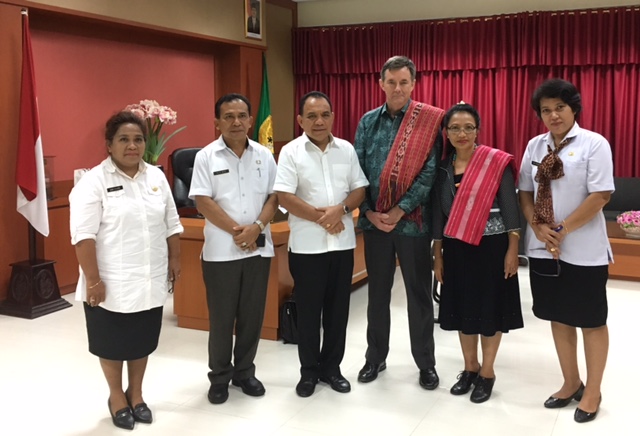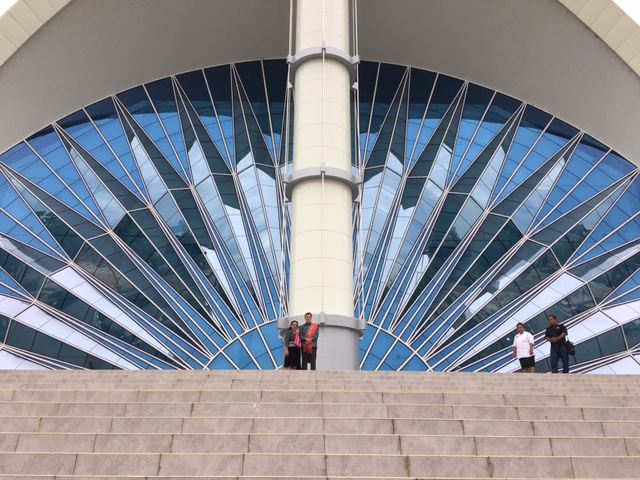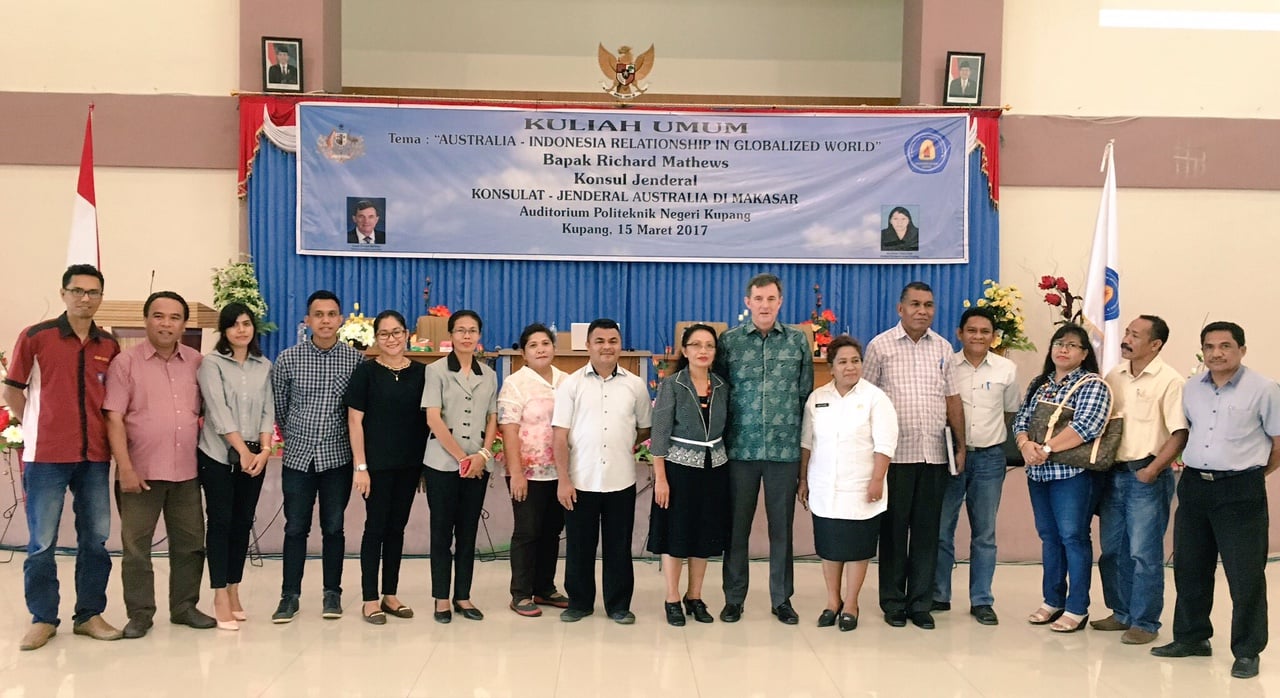East Nusa Tenggara (Nusa Tenggara Timur – NTT) has Indonesia’s third highest relative poverty rate (22.2 percent of the provincial population according to Central Statistics Bureau) after West Papua and Papua, largely because the majority of the population still lives a subsistence agricultural life-style. Provincial and kabupaten budgets are small and derived mostly from central government transfers, with little tax revenue collected locally. Health and education services remain limited outside the capital of Kupang.
But it is a beautiful, magical part of eastern Indonesia. The people are friendly, and communities are a mix of religions and ethnicities - for example Flores is mainly Catholic with pockets of Muslim settlers along the coast. The scenery is stunning: fabulous beaches and coral reefs, great soaring volcanos overlooking traditional mountain villages, and still vigorous and active cultural communities. Australia is just to the south and has a significant influence on the climate - and on the people. We are a major destination for those that can afford to travel and study overseas, and increasing numbers of Australians are exploring these lovely islands.
So we set off for NTT with great anticipation. We planned to meet senior officials and visit the state university (Universitas Cendana) and the state polytechnic (Politeknik Negeri Kupang). We would meet Australian alumni groups and local expatriates.
Kupang (pop 350,000) is the capital of NTT and is set around a large bay looking north. In the 1990s there were direct flights to Darwin run by the now-defunct Merpati airlines, and by all accounts these flights were well-used by Darwinians wanting an alternative holiday destination. Kupang is just 825 kilometers to the northwest, closer than Alice Springs.

I called on the Governor of NTT, Frans Lebu Raya, who told me he had been lobbying airlines and authorities to reopen flights to Darwin, or to Darwin via Dili, so far to no avail. But tourism in his province is taking off, in particular in west Flores in the town of Labuan Bajo near fabled Komodo island. Labuan Bajo is a bit like Kuta was thirty years ago: small homestays and fancy restaurants popping up now and then, while the big hotel resort chains and tour and activity companies are eyeing the prospects for moving in. Labuan Bajo even boasts a Siloam hospital, an oddity in such a small town if it were not for the rapidly growing numbers of tourists.
 In Kupang the Governor has his office in a brand new building built to resemble a traditional harp-like musical instrument called the sasando. Lots of steel and glass, quite an attraction. In his office we chatted about how we can work together to improve education outcomes in NTT, in particular in the technical and vocational education sectors (TVET).
In Kupang the Governor has his office in a brand new building built to resemble a traditional harp-like musical instrument called the sasando. Lots of steel and glass, quite an attraction. In his office we chatted about how we can work together to improve education outcomes in NTT, in particular in the technical and vocational education sectors (TVET).
In fact TVET became a focus of my meetings in Kupang. The newly-elected Mayor of Kupang, Jefry Riwu Koreh and his deputy Pak Hermanus told me that they want to improve TVET outcomes including by upgrading education at the Kupang State Polytechnic. They are also worried about innumerable urban development issues, including the fact that only 51 percent of the city's population has access to piped water: the rest rely on wells in an increasingly densely populated area.
At the Kupang State Polytechnic college (PNK) I met the directors who told me they had six streams of study including the most popular, tourism and hospitality. Their courses go up to Diploma Four level (D4) which equals to a basic bachelor degree. Their biggest problem was finding willing and appropriate places for their students to do internships or apprenticeships. It was usually not a problem finding internships for students in the tourism sector; but there were limited opportunities for automotive mechanics, or electrical technicians. The PNK staff were keen to explore the possibility of linking up with counterpart institutions in Australia.

After meeting the PNK staff I gave a talk to around 350 students: most were barely out of high school and probably were more interested in their friends’ latest social media posts than my sage advice about the value of a Polytechnic education. But the novelty of a Consul-General visiting their college pulled in a fair crowd. Most of their questions were about studying in Australia, but some asked for my views about tourism development: I said it was a growing sector and so tourism and hospitality training could only be useful.
We had a very pleasant evening hosting a BBQ at our hotel for the Australian alumni in Kupang. Around 80 turned up and spread out on the hotel verandah, looking over the Kupang Bay, cooled by a soft sea breeze. Also present were some Australia-Indonesia Youth Association members; some former malaria short course participants; many Australia Awards participants; and some local Australian expats. Donovan Whitford from Adelaide, a dive instructor and tour manager, has lived in Kupang for 25 years, and introduced us to his lovely family (see his website: http://www.kupangklubhouse.com/ ). John Schottler, our Consular Warden was also there.
Wherever we go there are also alumni: we will never be far from friends in eastern Indonesia! I told them all about the programs which our government runs for Australian alumni, such as the Alumni Grants Scheme which offers seed funding to alumni for community or professional development programs.
***
